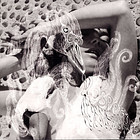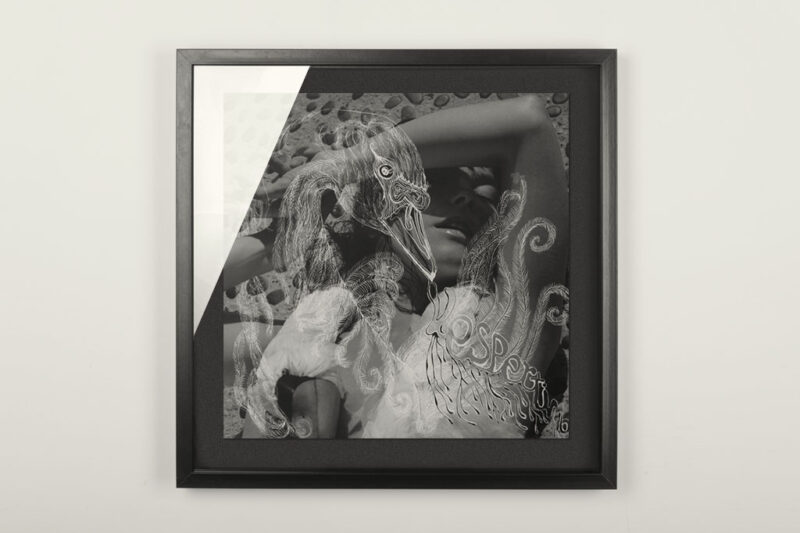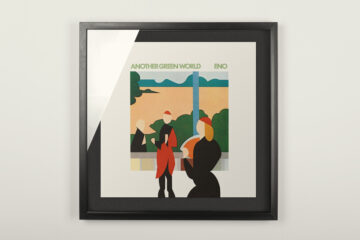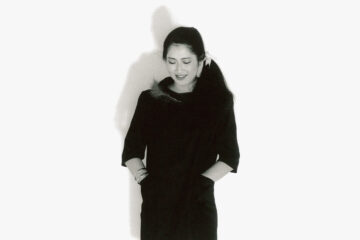Björk’s first albums promised nothing less than a fusion of cerebral electronic sounds and pop. And for some people, even more: »Whatever may be Nordic about Björk’s music passes through the filter of her personal creativity, drawing on dance music, avant-garde electronic music, 20th-century compositions, contemporary R&B, jazz, hip-hop, and just about anything else under the winter sun«, U.S. music critic Alex Ross once wrote in 2004. To this day, the hope that Björk Guðmundsdóttir is the missing link between pop and avant-garde persists. Which is how Björk says it herself. But just the fourth album of the Icelander put this belief to the test.
The big breakthrough for Björk seemed imminent at the turn of the millennium. She made her acclaimed acting debut with »Dancer in the Dark« (and provided the fantastic soundtrack at the same time), her third album »Homogenic« and its experimental electronic sounds were still having an impact. It gave critics the sense that music does accomplish great things after all. And then »Vespertine« was released on August 27, 2001. Undercooled beats and yet emotion through and through. A tremor for the heart. A disappointment for friends of progressive sounds.
»While undeniably beautiful, Vespertine fails to give electronic music the forward push it received on Björk’s preceding albums«, wrote Ryan Schreiber at Pitchfork. But it is precisely this pause, the introspection, the introversion that makes »Vespertine« an outstanding album. Just completely different from its predecessors.
There is so much more to discover in the crystalline and sparkling and quiet beauty of this album.
In an interview with German music journalist Markus Kavka on the release of the album, Björk herself said: »It’s a winter album. It’s about being inside in the winter.« Which isn’t exactly the statement for a push in electronic music. But because Björk said goodbye to the idea of pushing things to much forward, »Vespertine« unfolds in the very first bars of »Hidden Place«. A little later, the essence of the album pulls itself together in »Pagan Poetry«, whose naive melody and lyric lines freeze into every soul that has ever walked through the snowy night.
Björk said in that interview that she wanted to combine the abstract and the narrative. On “Vespertine” the pendulum clearly swings toward the narrative. It is the album of the now 55-year-old, which opens almost immediately. A sound that does not overwhelm but engages. Which is also due to the fact that organic instruments such as the harp are very present next to the beats. Björk created most of the beats herself, using things around the house like breaking ice as a basis.
»I’ve never understood why technology should be an enemy of emotion«, Björk said at the time. »The two have nothing to do with each other.« People and artists bring in the emotions. Not the technology.
Shortly after the turn of the millennium, the music industry was preoccupied with another matter: Napster. Illegal downloads were becoming a bigger and bigger problem, according to the labels. Metallica had sued the digital music exchange site in 2000. Markus Kavka looked appropriately confused when Björk told him that she found Napster and downloading very exciting. »I picked the singles based on the fact that they were suitable for downloading.« When you whisper in the songs, it sounds pretty over Napster, she said.
The comparison to Radiohead’s »Kid A«, which had been released shortly before, was obvious at the time, because both records seemed to take on an attitude of refusal. From today’s point of view, however, »Vespertine« is not a refusal, but simply a different expression of an artist who here chooses the sound-technical standstill, precisely in order not to fall into stagnation.
Björk drew the strength and beauty for this album from her relationship and her own emotions. It’s as if she’s taking another breath on a winter’s night, only to capture the day in her art all the more euphorically in a few hours. She wants to find the perfect pop song, Björk once said. It is not to be found on »Vespertine«. No one needs to search for it. There is so much more to discover in the crystalline and sparkling and quiet beauty of this album.
»Who would have known
A beauty this immense?
Who would have known
A saintly trance?«
(Björk – Cocoon)










